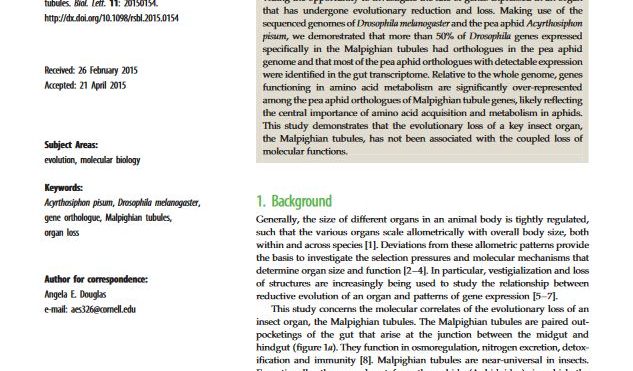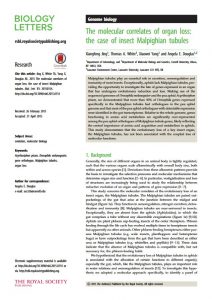Malpighian tubules play an essential role in excretion, osmoregulation and immunity of most insects. Exceptionally, aphids lack Malpighian tubules, providing the opportunity to investigate the fate of genes expressed in an organ that has undergone evolutionary reduction and loss. Making use of the sequenced genomes of Drosophila melanogaster and the pea aphid Acyrthosiphon pisum, we demonstrated that more than 50% of Drosophila genes expressed specifically in the Malpighian tubules had orthologues in the pea aphid genome and that most of the pea aphid orthologues with detectable expression were identified in the gut transcriptome. Relative to the whole genome, genes functioning in amino acid metabolism are significantly over-represented among the pea aphid orthologues of Malpighian tubule genes, likely reflecting the central importance of amino acid acquisition and metabolism in aphids. This study demonstrates that the evolutionary loss of a key insect organ, the Malpighian tubules, has not been associated with the coupled loss of molecular functions.
Region: Not specific
Date published:
2015
Published by:
The Royal Society
Type of resource:
Journal article
Resource topic:
Molecular biology
Project/Programme: Not specific
Pest/Disease: Aphids, Psyllids, Whitefly
Pages:
5
File type:
External link (323 KB)




